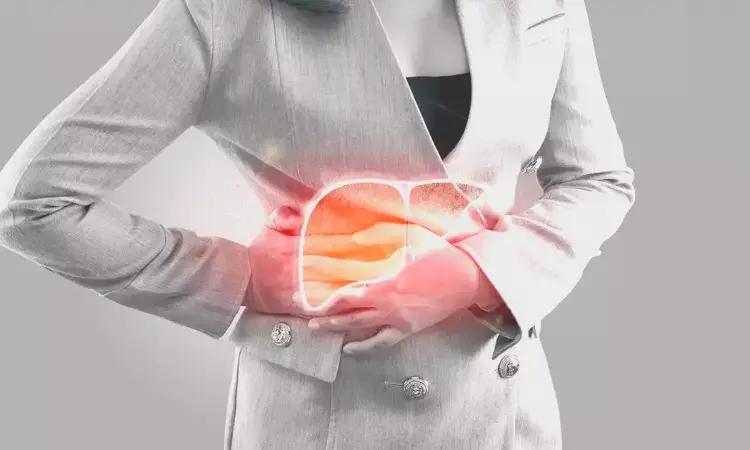- Home
- Medical news & Guidelines
- Anesthesiology
- Cardiology and CTVS
- Critical Care
- Dentistry
- Dermatology
- Diabetes and Endocrinology
- ENT
- Gastroenterology
- Medicine
- Nephrology
- Neurology
- Obstretics-Gynaecology
- Oncology
- Ophthalmology
- Orthopaedics
- Pediatrics-Neonatology
- Psychiatry
- Pulmonology
- Radiology
- Surgery
- Urology
- Laboratory Medicine
- Diet
- Nursing
- Paramedical
- Physiotherapy
- Health news
- Fact Check
- Bone Health Fact Check
- Brain Health Fact Check
- Cancer Related Fact Check
- Child Care Fact Check
- Dental and oral health fact check
- Diabetes and metabolic health fact check
- Diet and Nutrition Fact Check
- Eye and ENT Care Fact Check
- Fitness fact check
- Gut health fact check
- Heart health fact check
- Kidney health fact check
- Medical education fact check
- Men's health fact check
- Respiratory fact check
- Skin and hair care fact check
- Vaccine and Immunization fact check
- Women's health fact check
- AYUSH
- State News
- Andaman and Nicobar Islands
- Andhra Pradesh
- Arunachal Pradesh
- Assam
- Bihar
- Chandigarh
- Chattisgarh
- Dadra and Nagar Haveli
- Daman and Diu
- Delhi
- Goa
- Gujarat
- Haryana
- Himachal Pradesh
- Jammu & Kashmir
- Jharkhand
- Karnataka
- Kerala
- Ladakh
- Lakshadweep
- Madhya Pradesh
- Maharashtra
- Manipur
- Meghalaya
- Mizoram
- Nagaland
- Odisha
- Puducherry
- Punjab
- Rajasthan
- Sikkim
- Tamil Nadu
- Telangana
- Tripura
- Uttar Pradesh
- Uttrakhand
- West Bengal
- Medical Education
- Industry
Growth hormone improves NAFLD in obese patients without disturbing glycemic control

In persons with overweight/obesity and nonalcoholic fatty liver disease (NAFLD), growth hormone (GH) treatment improves hepatic steatosis without affecting glycemic measurements, says an article published in The Journal of Clinical Endocrinology & Metabolism.
Overweight and obesity are linked to a lack of relative growth hormone, which has been linked to the development of nonalcoholic fatty liver disease. NAFLD is a degenerative condition for which there are no viable therapies. As a result, Laura Dichtel and colleagues undertook this trial with the premise that GH treatment would diminish hepatic steatosis in those who were overweight/obese and had NAFLD.
In this 6-month randomized, placebo-controlled, double-blind, trial of low-dose the growth hormone administration, 53 adults aged 18 to 65 years with BMI 25 kg/m2 and NAFLD without diabetes were randomized to daily subcutaneous GH or placebo, with IGF-1 targeting the upper normal quartile. The primary outcome was intrahepatic lipid content (IHL) as measured by proton magnetic resonance spectroscopy (1H-MRS) before and after therapy.
The key findings of this study were:
At 6 months, 41 subjects (20 GH and 21 placebo) were randomly allocated to a therapy group (27 GH; 26 placebo).
The reduction in absolute% IHL by 1H-MRS was considerably larger in the GH group vs the placebo group, resulting in an 8.9% net mean treatment effect.
Except for non-clinically noteworthy lower extremity edema, which was more common in the GH than placebo group (21% vs 0%, P = .02), other side events were comparable between groups.
There were no trial dropouts owing to deteriorating glycemic control, and there were no significant changes in glycemic control or resistance to insulin between the GH and placebo groups.
Reference:
Dichtel, L. E., Corey, K. E., Haines, M. S., Chicote, M. L., Lee, H., Kimball, A., Colling, C., Simon, T. G., Long, M. T., Husseini, J., Bredella, M. A., & Miller, K. K. (2023). Growth Hormone Administration Improves Nonalcoholic Fatty Liver Disease in Overweight/Obesity: A Randomized Trial. In The Journal of Clinical Endocrinology & Metabolism. The Endocrine Society. https://doi.org/10.1210/clinem/dgad375
Neuroscience Masters graduate
Jacinthlyn Sylvia, a Neuroscience Master's graduate from Chennai has worked extensively in deciphering the neurobiology of cognition and motor control in aging. She also has spread-out exposure to Neurosurgery from her Bachelor’s. She is currently involved in active Neuro-Oncology research. She is an upcoming neuroscientist with a fiery passion for writing. Her news cover at Medical Dialogues feature recent discoveries and updates from the healthcare and biomedical research fields. She can be reached at editorial@medicaldialogues.in
Dr Kamal Kant Kohli-MBBS, DTCD- a chest specialist with more than 30 years of practice and a flair for writing clinical articles, Dr Kamal Kant Kohli joined Medical Dialogues as a Chief Editor of Medical News. Besides writing articles, as an editor, he proofreads and verifies all the medical content published on Medical Dialogues including those coming from journals, studies,medical conferences,guidelines etc. Email: drkohli@medicaldialogues.in. Contact no. 011-43720751


